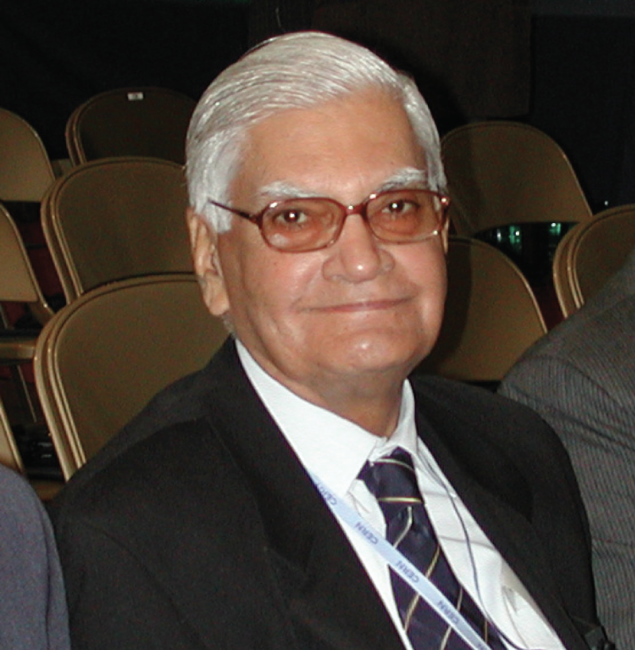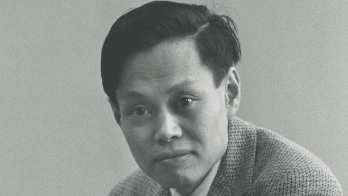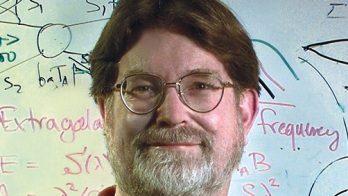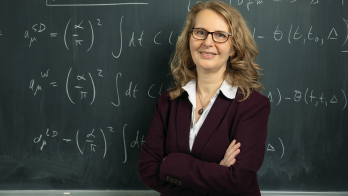
The architect of Pakistan–CERN collaboration and former chairman of the Pakistan Atomic Energy Commission (PAEC), Ishfaq Ahmad, passed away on 15 January in Islamabad aged 87. He remained associated with PAEC for more than 40 years. After joining the organisation in 1960 on completion of his PhD at the University of Montreal in Canada, and post-doc positions at University of Ottawa and Sorbonne (Université de Paris), he played a crucial role in the development of civil and military nuclear technology in Pakistan.
Ishfaq’s doctoral work was based on the use of fine-grained nuclear emulsions, pioneered by his thesis supervisor, Pierre Demers. He also worked at the Niels Bohr Institute in Copenhagen between 1961 and 1962, where he had opportunities to interact with Bohr himself. It was during his stay there that his experimental work on nuclear reactions brought him to CERN, where nuclear emulsions were exposed for subsequent analyses at different laboratories. Years later, he recalled that his fascination with CERN and the work being done there never faded, resulting in the establishment of close ties between CERN and PAEC.
The first formal scientific and technical agreement between CERN and Pakistan, which formed the basis of future Pakistan–CERN cooperation, was signed on 11 January 1994 by Ishfaq on behalf of Pakistan and the then CERN Director-General Chris Llewellyn-Smith, on behalf of CERN. Thereafter, a series of protocols, addendums and extensions of protocols, MoUs and Letters-of-Intent were signed by CERN DGs and PAEC chairmen, many concerning specific projects related to the construction of the Large Hadron Collider and components of the CMS and ATLAS detectors. The most conspicuous of these projects was the supply of eight steel supports for the CMS yoke, which were fabricated in PAEC laboratories in Islamabad. Concurrently, the participation of the National Centre for Physics (NCP) in the CMS collaboration resulted in scientific exchanges and data simulations. A node for grid computing was also established at NCP. Another institution in Pakistan that joined the CERN collaboration was the COMSATS Institute of Information Technology, which was granted membership of the ALICE collaboration. Eventually, Pakistan gained Associate Membership of CERN on 31 July 2015.
While overseeing the increasingly deeper ties between Pakistan and CERN, Ishfaq remained actively engaged with other international fora, such as the International Atomic Energy Agency (IAEA), the International Centre for Theoretical Physics (ICTP) and the International Institute for Applied Systems Analysis (IIASA). As member of the board of governors of IAEA, he was able to convince the then director-general of IAEA, Hans Blix, to establish an advisory group that strengthened the agency’s role as a facilitator of civilian nuclear technology through improved technical cooperation programmes, especially for developing countries.
His avid support for ICTP was also based on his strong belief in science as a vehicle of peace and development. It is not surprising that he was the one who wrote to the then UN secretary-general Kofi Annan to launch World Science Day for Peace and Development, which was duly approved by the Security Council and has been organised internationally by UNESCO since 2001. He regularly participated in PUGWASH meetings following the 1974 Indian nuclear tests and strongly advocated for a nuclear-free South Asia. He was a strong supporter of nuclear power as a significant component of the energy mix in Pakistan, but kept open mind about alternative energy sources. He lobbied and successfully achieved Pakistan’s membership of IIASA, and remained on its board from 2007 to 2012. His broader vision of national economic interests led to the creation of institutions such as the Global Climate Change Impact Study Centre and the Centre for Earthquake Studies in Pakistan.
In 1998 the government of Pakistan bestowed upon Ishfaq the highest civil award, “Nishan-i-Imtiaz”, besides several other honours and awards in preceding years, and entrusted him with prestigious positions such as advisor to the prime minister of Pakistan and other senior roles. He held government posts until 2012, when he decided to restrict his activities to the work of NCP as the chairman of its board of governors. He was buried with state honours in Islamabad on 16 January.








